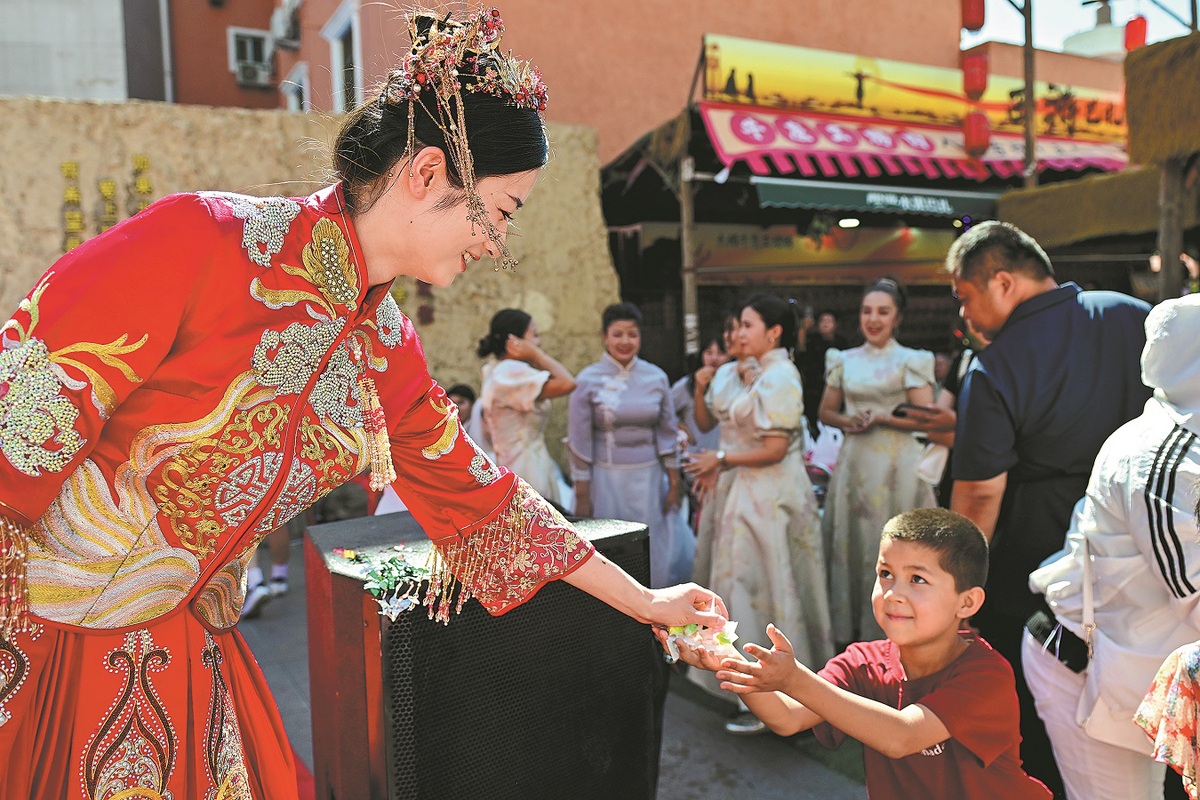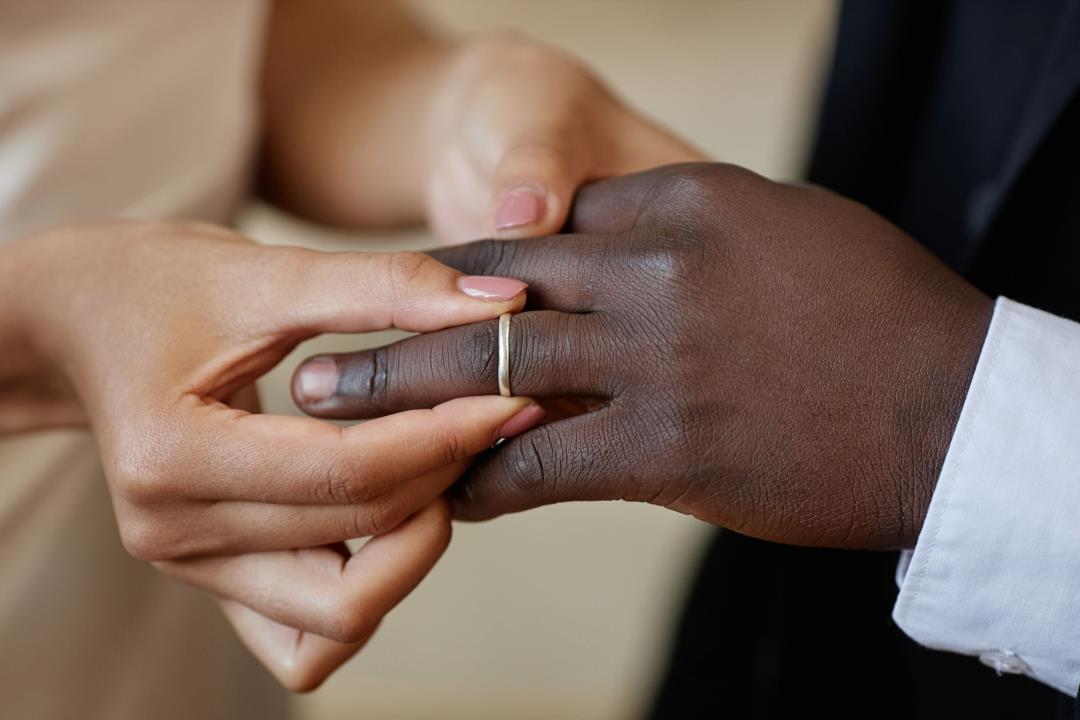
A bride gives candy to a child at her wedding ceremony in Urumqi, Xinjiang Uyghur Autonomous Region, on Saturday during the Qixi Festival, or Chinese Valentine’s Day. DING LEI/XINHUA
Candy shop owners on Zigu Road in Nanchang are even more concerned than parents of young couples about the growing number of young people who are in no hurry to get married.
“We sell sweets for all kinds of celebrations, but mainly for weddings,” said Liu Xiaojun, one of the candy shop owners. “This year’s May Day holiday brought us almost no business. It’s been a tough year.”
Zigu Road is an ancient road in Nanchang, the capital of Jiangxi Province, named after the famous writer Zeng Gong of the Song Dynasty (960–1279), whose courtesy name was Zigu.
In the 1990s, there were more than 20 candy shops along the street and families in Nanchang enjoyed the sweet treats, especially the popular White Rabbit candies, a well-known brand from Shanghai.
The street is less than a kilometer from Tengwang Pavilion, a well-known tourist attraction. However, unlike the busy tourist area, few pedestrians are seen in front of the wedding candy shops these days.
The declining marriage rate, competition from online retailers and the younger generation’s preference for sugar-free products are reducing the sales of these small shops.
Traditional delicacies
It is the end of July and Nanchang is still very hot and humid even at dusk. One of Liu’s customers, Qiu, arrives in a white car and enters the candy shop on Zigu Road.
She recently got married and needs wedding sweets for the banquet. Qiu points to some fancy candy boxes and asks Liu, “How much are these?”
A short time later she returns to her car with a large red plastic bag in her hand.
Sweets play a small but important role in every traditional Chinese wedding. They are often distributed at the reception or offered to guests as a wedding gift.
Typically, sweets are also exchanged between families, as a traditional symbol of good luck and to bring good fortune to many children.
“A single order of wedding sweets usually costs between 1,000 ($140) and 2,000 yuan. But with fewer people getting married, our profit margins have dropped,” Liu said.
Her husband, Xu Wei, pulls out a calculator and says, “We just received an order totaling 1,340 yuan. After deducting all costs, our profit is less than 100 yuan, and we still have to package the candy for the customer.”
Each small wedding package usually contains 8 to 20 different types of candy.
“When business was booming, we would stay busy packing candy until one or two in the morning,” Xu said. “Now we don’t have those busy nights anymore.”
Daily sales are often less than a few hundred yuan. “This year is particularly tough,” he said.
“It is said that young people in big cities like Beijing and Shanghai do not get married, but even here in Nanchang, few tie the knot.”
Lately, her store’s primary clientele has been families hosting graduation parties, which has resulted in slightly better business than during the off-season.
Wedding candy culture is popular in eastern China, especially in provinces such as Jiangsu, Zhejiang, Fujian, Anhui and Jiangxi, which together account for nearly 80 percent of the market, according to China Candy magazine.
Whether it is a wedding, a birth, a housewarming or a birthday in Nanchang, the residents love to hand out sweets.
The wedding candy business is also seasonal.
After the Chinese New Year, business picks up in April, peaks during the May holidays, and then slows down until the end of the year celebrations in July and August. It picks up again during the National Day holidays in October before dropping off again.





